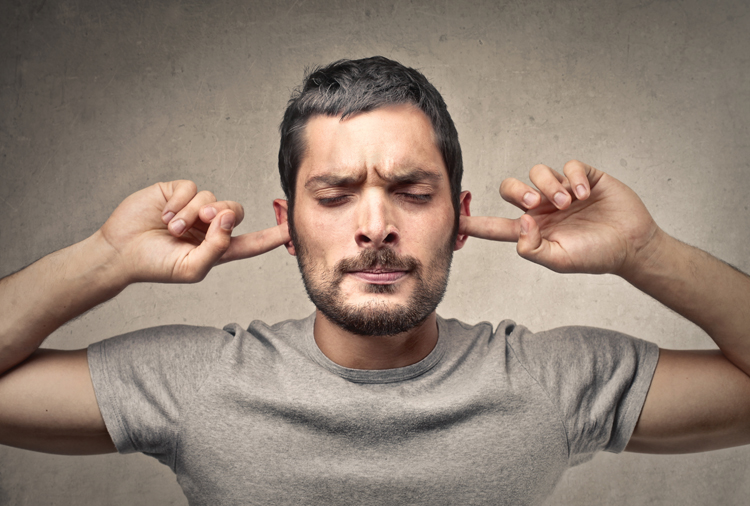
Hyperacusis: hypersensitivity to sound
Hyperacusis is when acceptable-volume sounds or noises cannot be tolerated. People with hyperacusis hear sounds louder than they really are. They might say that they hear everyday sounds “too much.” For example, people with hyperacusis are bothered by sounds like washing the dishes, crowds, laughing, a phone ringing, children yelling or a vacuum. Someone with hyperacusis does not have better hearing than normal.
Hyperacusis causes and related factors
- Prolonged exposure to noise
- Acoustic trauma (sudden noise)
- Head trauma or surgery
- Ear problems
- Facial paralysis
- Stress, anxiety, depression
- Migraines
- Perception of tinnitus
- Etc.
Effects of hyperacusis on daily life
- Stress, fatigue, irritability
- Overprotection of hearing
- Avoidance of social activities and locations thought to be too noisy
- Difficulty doing certain daily activities (vacuuming, driving a car)
- Tension/conflicts in the family or at work
- Isolation
Solutions to treat hyperacusis
Systematic desensitization program
Systematic desensitization is the main treatment for hyperacusis. It trains the auditory system to better tolerate sounds from the environment. A professional audiologist can properly assess your degree of hyperacusis, and then design a sound desensitization treatment plan.
Avoid overprotecting your hearing
Think of how your eyes adjust to a change in lighting. Imagine you’re in a dark movie theatre and have just walked out into bright daylight. Everything seems glaringly bright to you, but not to people who were not in the theatre. Your eyes got used to the darkness and now must get used to the light.
Your ears adjust to sounds in the same way your eyes adjust to light. If you stay in silent places, your ears will not be used to hearing noise. After a period of time, normal daily noises will seem louder and will be harder to handle. This is why hearing protection (earplugs, headphones) should not be used during daily activities. The Sound Volume Scale and Normal Human Reactions table is a tool that helps us recognize situations in which hearing protection would be necessary (danger zone causing possible damage to the auditory system).
Enrich your sound environment
Begin to surround yourself with ambient noise using any sounds that aren’t irksome to you. The goal is to avoid total silence so you can help your ears readjust. Some examples of sounds to use are:
- Music at a comfortable volume
- Radio or television
- A running fan
- A tabletop water fountain
- A sound generator
If you’re in a situation where the sound is too bothersome, it’s better to move gradually away from the source until the volume is tolerable than to withdraw completely from the sound’s source.
Ear-level sound generator
In experimental research, people who wore ear-level sound generators could tolerate more sounds after two weeks. The device gradually delivers controlled, continuous sound directly to the ear. The added sound enriches the environment, helping the ears reset their sensitivity level.
Complementary solutions
- Stress, anxiety management
- Relaxation, breathing
- Sleep hygiene
- Psychological therapy
Managing the reaction / Habituation to hyperacusis
The association with a negative reaction becomes an unconscious reflex in the brain. The brain has to be re-educated to change this reflexive reaction to a more neutral reaction. There are several techniques to help develop a neutral reaction to sounds. An audiologist can teach you these techniques.
Other types of sound sensitivity
Misophonia
- Intense intolerance of specific sounds in specific situations
- Other sounds of the same intensity are easily tolerated
- Bothered by the psychological aspect of the sound (e.g. does not like a sound)
Phonophobia
- Fear and anxiety regarding specific sounds
- Psychological phenomena
- Loudness recruitment
- Inner ear disorder that creates an abnormal perception of a sound’s volume
- Associated with hearing loss
If you suffer from hyperacusis, see an audiologist from our partner Audiosanté as soon as possible. The professional will assess your hearing and your discomfort level to certain sounds, and check whether there’s a problem in your auditory system. Evaluating your degree of hyperacusis will help your audiologist create a personal plan to help you one step at a time.










